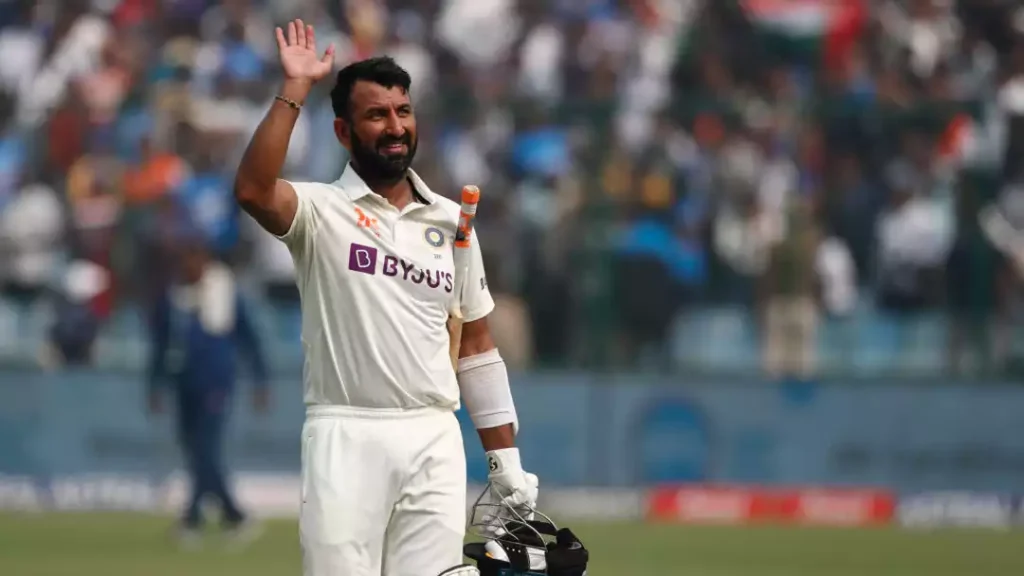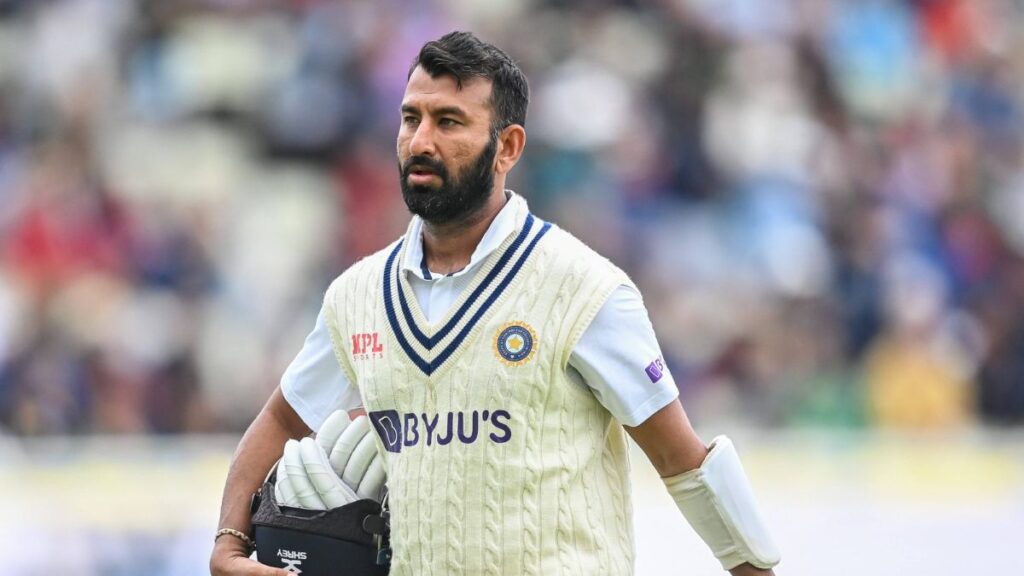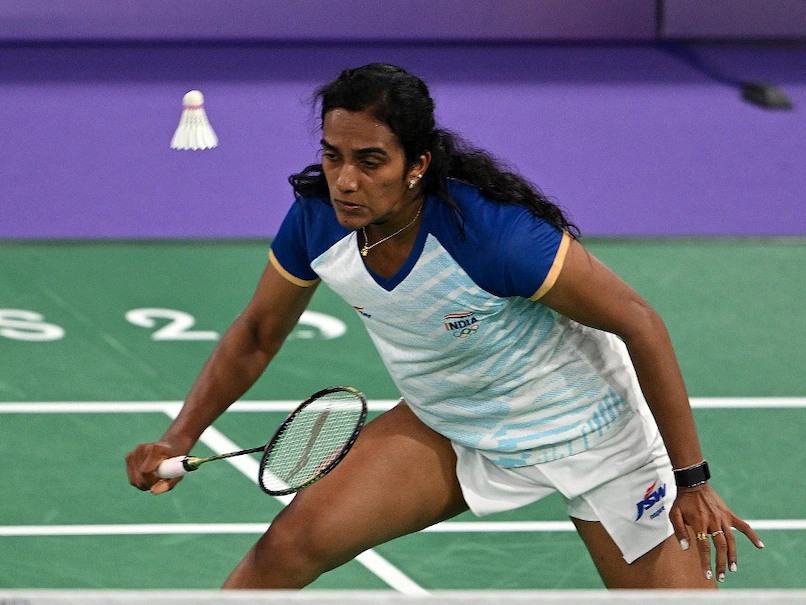MyMentalCoach Congratulates Cheteshwar Pujara on a remarkable career. Your grit, resilience, and passion for Test cricket will always inspire generations — you will truly be missed on the field, but never forgotten in the story of Indian cricket.
Understanding Grit vs. Resilience in Cricket
In the world of sports psychology, grit and resilience are often spoken about in the same breath, but they carry distinct meanings. Resilience is the ability to recover from setbacks, to rise again after a fall, and to keep going despite the challenges faced. Grit, on the other hand, goes a step further – it’s not just about bouncing back, but also about having the passion and long-term perseverance to keep pursuing a goal relentlessly, no matter how hard the road gets. A resilient athlete can withstand blows and come back stronger, while a gritty athlete combines that resilience with an unwavering love for the game and a refusal to let go of their ultimate vision.
To lear more about the most resilient athletes in sports, read this article on “Who Are the Most Resilient Athletes in Sports History?“.
Cheteshwar Pujara is perhaps the perfect embodiment of both qualities in modern cricket. Throughout his career, he has shown time and again that his love for Test cricket fuels his remarkable perseverance, allowing him to withstand physical pain, mental exhaustion, and external criticism without ever losing sight of his role as India’s anchor. His innings are not just displays of technical mastery but also living examples of how grit (passion-driven persistence) and resilience (the ability to endure adversity and bounce back) work together to build greatness. Whether it’s battling hostile fast bowlers on foreign pitches or standing tall in pressure-cooker situations, Pujara has shown that true success in cricket—and in life—comes not just from talent, but from the strength of mind and heart.
Historic Test Highlight: The 211-Ball Grit at the Gabba
Let me take you back to the final Test of the Border-Gavaskar Trophy in 2021, at the Gabba, Brisbane. India were up against a full-strength Australian pace attack on their fortress ground, where they hadn’t lost for over 30 years. And in the middle of all that intensity, stood Cheteshwar Pujara. He wasn’t scoring at a flashy strike rate, he wasn’t dominating with boundaries – but what he did was far more valuable. Pujara absorbed 211 deliveries, scored 56 runs, and, most importantly, endured 11 painful blows on his body from fast bowlers who were charging in at over 145 km/h. Every time the ball thudded into his helmet, shoulder, ribs, or arm, he didn’t flinch for long – he reset, took a breath, and prepared for the next one.
Now here’s the thing most people miss: this wasn’t just about resilience – getting hit and carrying on. This was grit in its purest form. Pujara wasn’t merely surviving; he was driven by a deep passion to hold the innings together, to fight for India’s chance at history. Each blow he took was a reminder of how much the game meant to him, how much the team depended on him, and how much he was willing to suffer for the larger goal. As a sports psychologist, I can tell you, enduring pain is one thing, but doing it with calmness, focus, and unwavering commitment requires extraordinary mental conditioning.
That day at the Gabba, Pujara showed us something bigger than numbers on a scoreboard. He showed that passion gives meaning to pain, and grit transforms suffering into strength. His 56 runs may not look like a match-winning hundred, but without those 211 balls and that stubborn refusal to give in, India would never have pulled off one of the greatest Test victories in history. That’s why, whenever I talk to athletes about the power of the mind, I point to Pujara’s Gabba innings – it is the living example of how grit, passion, and resilience combine to create sporting greatness.
Another Marathon Innings: Ranchi 2017 – 525 Balls, 202 Runs
If you want another example of what grit looks like stretched over time, let’s go back to Ranchi in 2017. India were up against Australia again, and the match was hanging in the balance. That’s when Cheteshwar Pujara walked in and did something almost unimaginable in today’s era of fast-scoring cricket – he batted for 525 balls and scored 202 runs. Just pause on that for a second. That’s not just a double century; that’s the longest innings ever played by an Indian in Test cricket in terms of balls faced.
What does this really mean? It means for hour after hour, session after session, Pujara stayed locked in – no lapses in concentration, no chasing unnecessary glory shots, no giving in to fatigue. To bat through 525 deliveries requires far more than technique; it requires mental endurance of the highest order. You need to manage your thoughts, silence self-doubt, control frustration, and constantly remind yourself of the larger purpose. And here’s where passion plays such a big role. Without passion for Test cricket, no one willingly subjects themselves to that kind of grind. Pujara’s love for the game gave him the strength to stay out there, knowing every ball survived was another small victory for the team.
That innings in Ranchi was not just about a personal milestone; it was about anchoring India when the team needed stability the most. As I often tell athletes I work with, greatness doesn’t always come from the highlight reels – sometimes it’s in the unseen discipline, the hours of quiet focus, and the refusal to give in when your body and mind are begging you to stop. Pujara’s 202 wasn’t glamorous, but it was heroic. It showed us that in the long game – whether in cricket or in life – it’s the mental fortress you build that keeps you standing tall.
Sports Psychologist & Mental Coach in Test Match Anchors
When you watch a player like Cheteshwar Pujara bat through 200 or even 500 balls, you might think it’s only about technique and fitness. But let me tell you something from my experience as a sports psychologist – the mind is doing just as much heavy lifting as the body, sometimes even more. To last that long, you need mental strategies that allow you to stay locked in ball after ball, session after session, without letting fatigue, doubt, or distraction creep in. That’s where psychological preparation and mental coaching become game changers.
Think about it: when you’re getting hit on the body by fast bowlers, or when the scoreboard isn’t moving much, what keeps you going? It’s not physical strength alone – it’s belief, it’s the ability to keep telling yourself, “I can do this. My role is important. Every ball matters.” This kind of self-talk is a mental tool that elite athletes practice with their mental coaches. Along with that comes focus training – learning how to switch on before every delivery, reset your mind in between balls, and block out the noise of the crowd or the pressure of the situation. These are skills built deliberately, not accidentally.
A gritty performance like Pujara’s is the result of years of not just physical practice but also mental conditioning. As a mental coach, I often remind athletes that what you say to yourself in tough moments is as critical as the shot you play or the strategy you choose. In those marathon innings, Pujara’s inner voice, his unwavering self-belief, and his calm focus were as much a part of his toolkit as his straight bat and solid defense. That’s why when we at MyMentalCoach work with athletes, we don’t just look at their technique – we look at the mindset behind the performance, because that’s what turns resilience into true grit.
The Gritful Legacy of Cheteshwar Pujara: Lessons for Every Athlete
Cheteshwar Pujara’s career is more than just a collection of runs and records – it’s a living lesson in how grit, resilience, and passion come together to create greatness. His innings at the Gabba, where he took body blow after body blow yet stood tall for India, and his marathon double century in Ranchi, where he faced 525 balls without losing focus, are not just cricketing milestones. They are case studies in mental strength, endurance, and the power of passion. Pujara has shown us that talent alone doesn’t carry you through the toughest moments – it’s the mind that decides whether you bend or whether you stand unshaken.
For any athlete dreaming of longevity and success in high-pressure formats, Pujara’s approach is the blueprint. His story underlines why mental support, whether from a sports psychologist or a mental coach, is no longer optional but essential. Building focus, belief, patience, and the ability to keep going when the body screams “enough” – these are skills that can be trained, practiced, and strengthened. That’s the kind of work we do at MyMentalCoach – helping athletes build not just skill, but also the mental fortress that carries them through their defining moments.
And here’s the real takeaway: grit is not just for Pujara, it’s for you too. Whether you’re an athlete, a student, or a professional chasing your own goals, cultivating passion-driven perseverance and resilience can transform the way you face challenges. So reflect for a moment – how has mental toughness shaped your journey so far? What could change if you trained your mind as seriously as your body?
If you’d like to explore this further and start building your own “Pujara mindset,” reach out to us at +91 9823791323. Let’s work together to unlock the grit, resilience, and passion within you.


